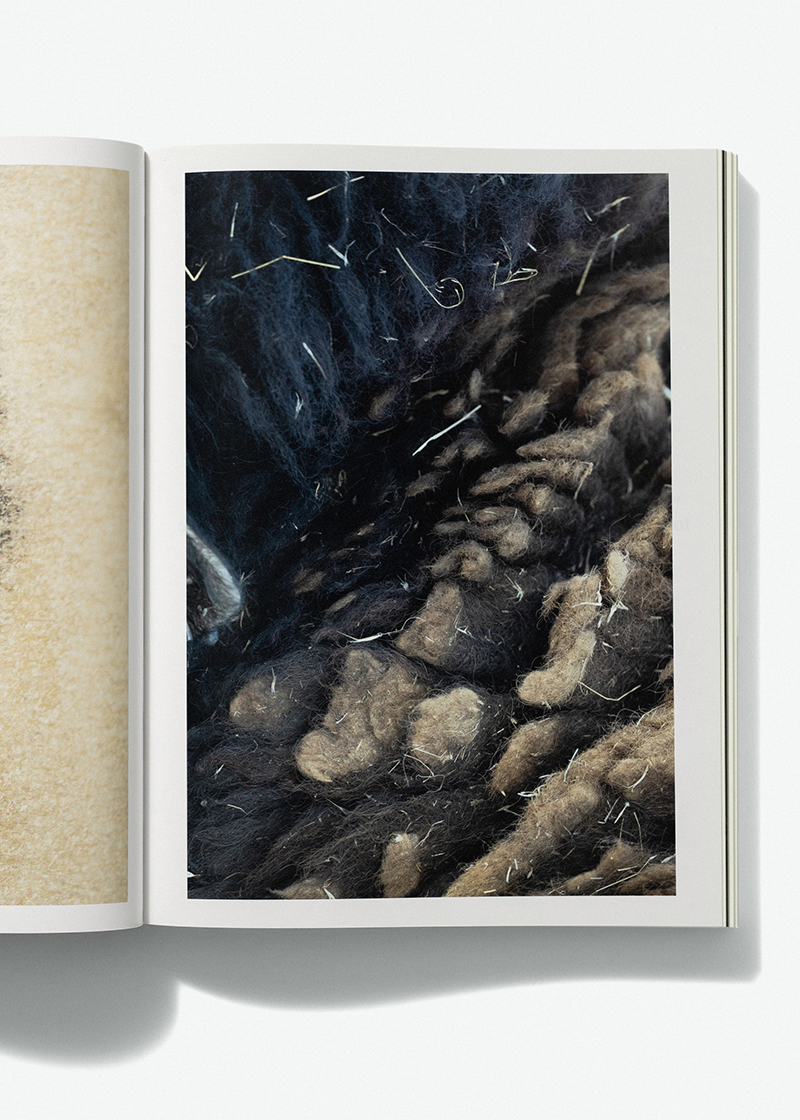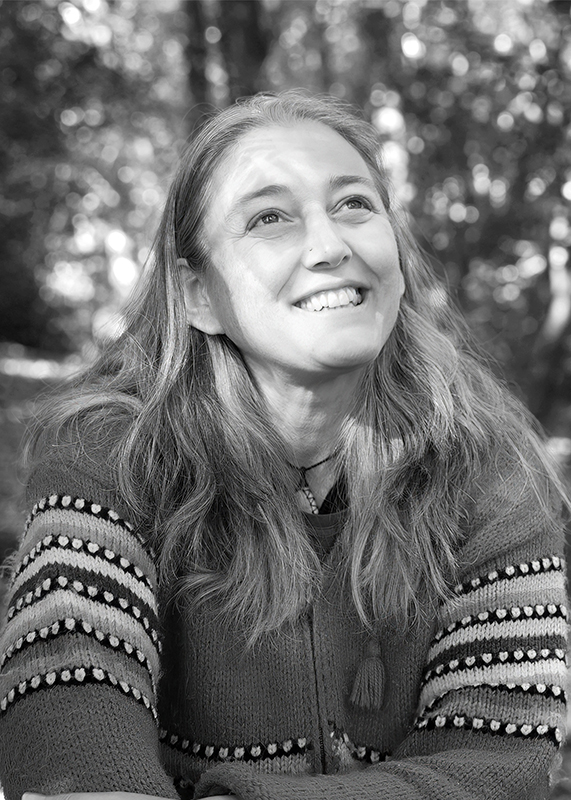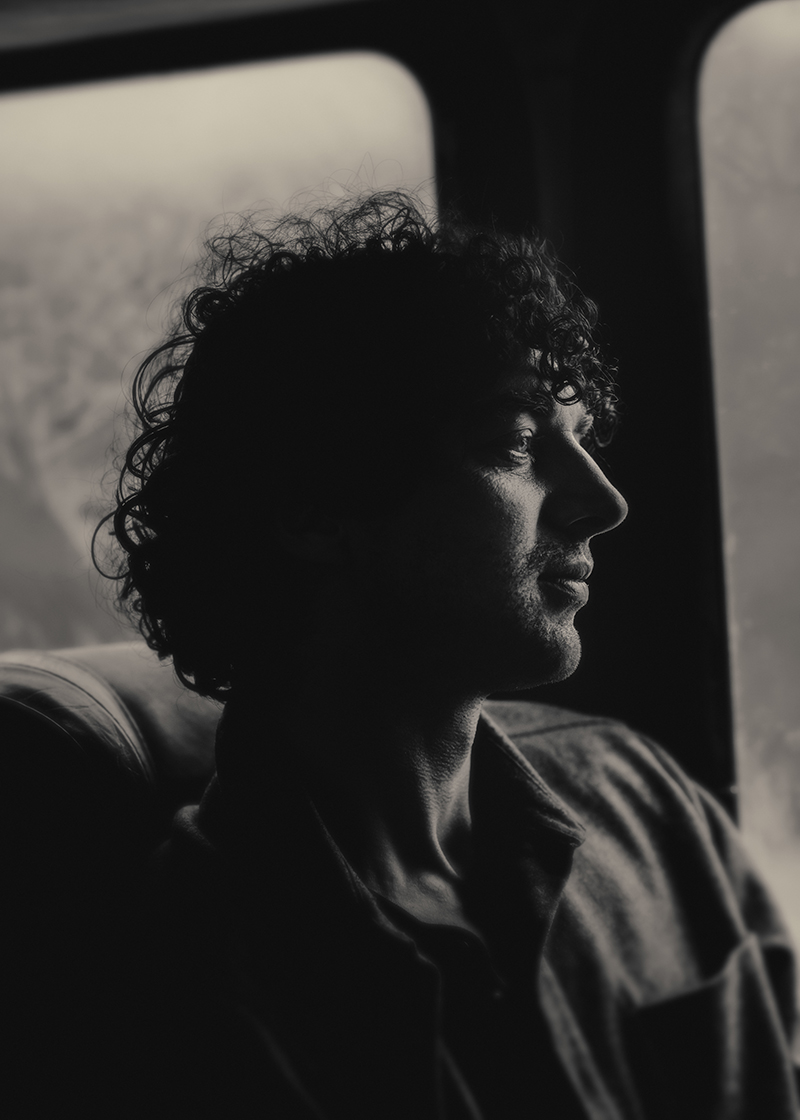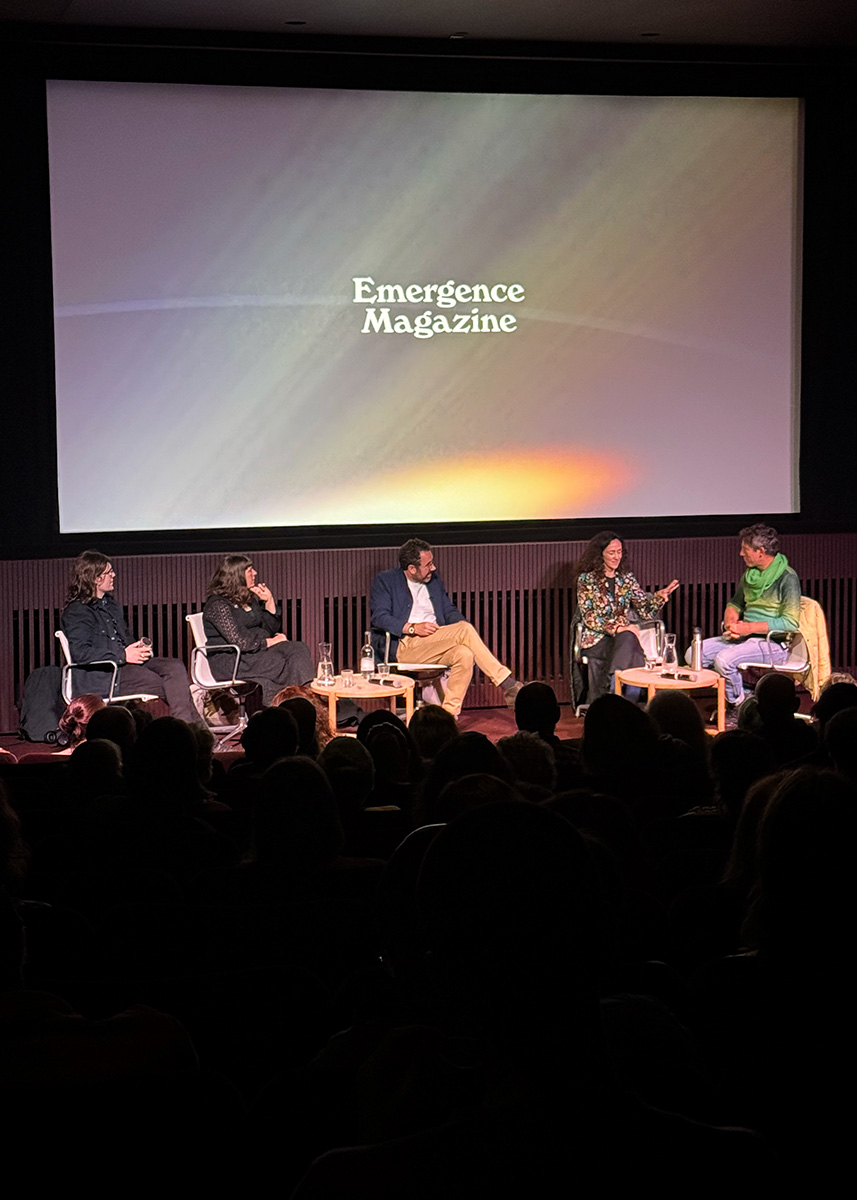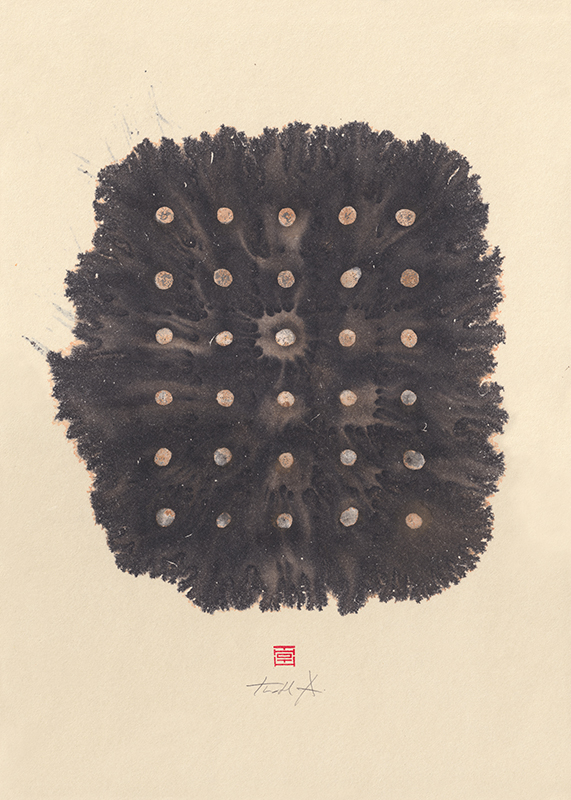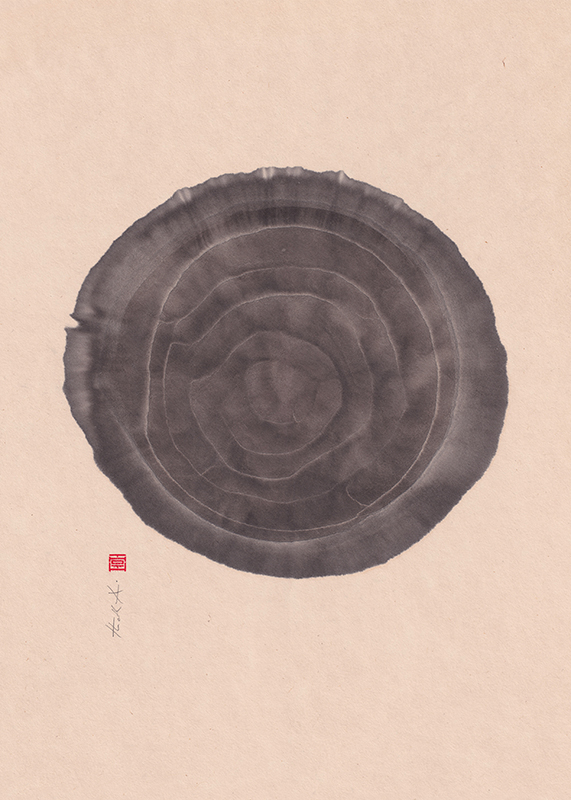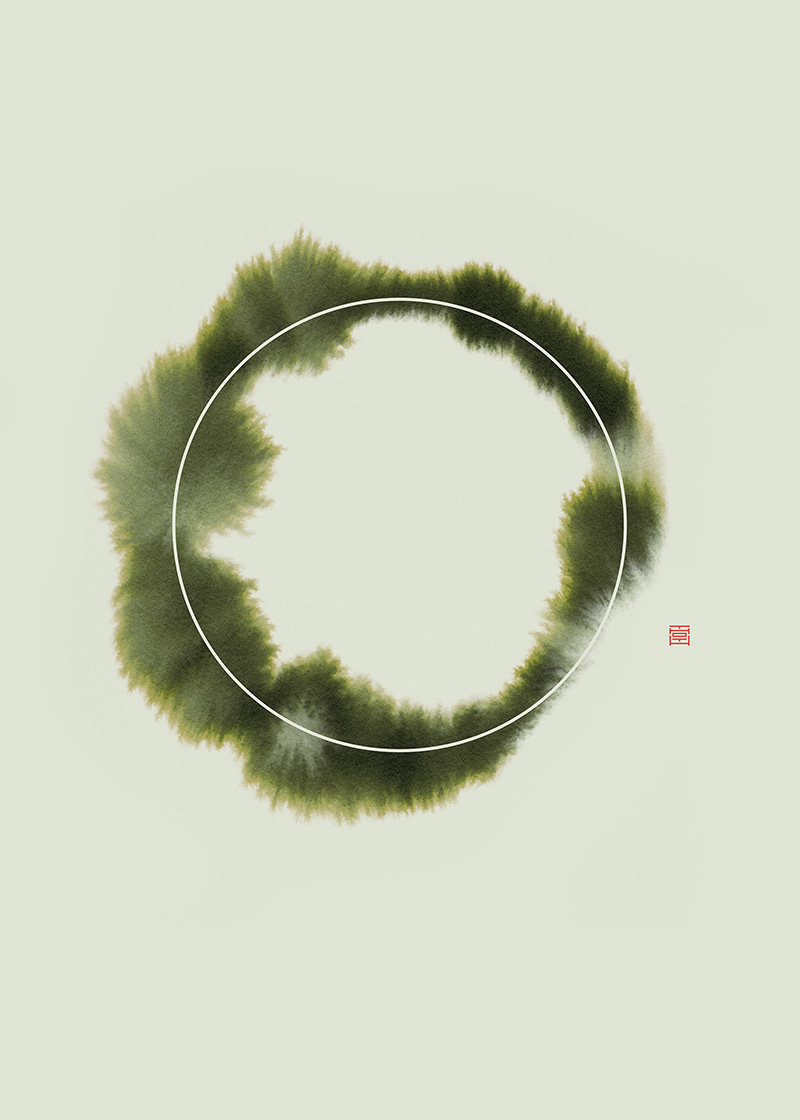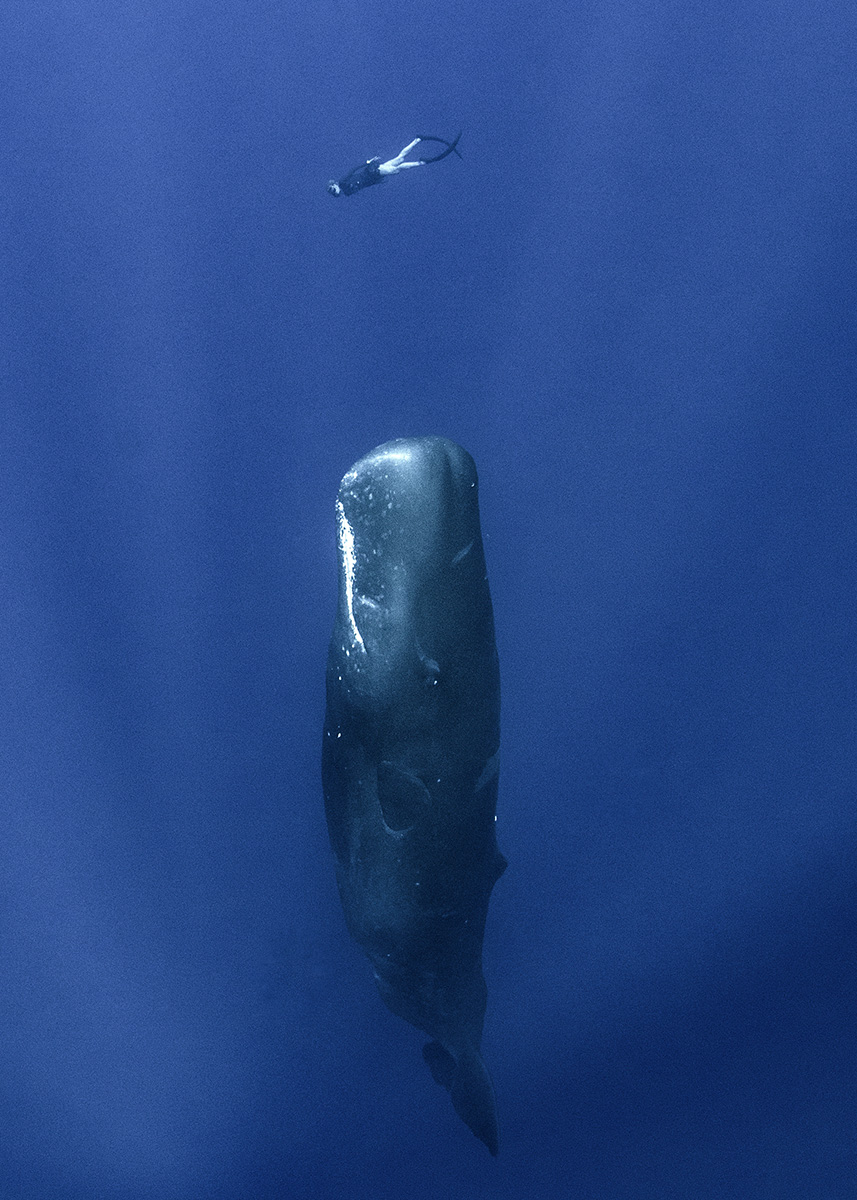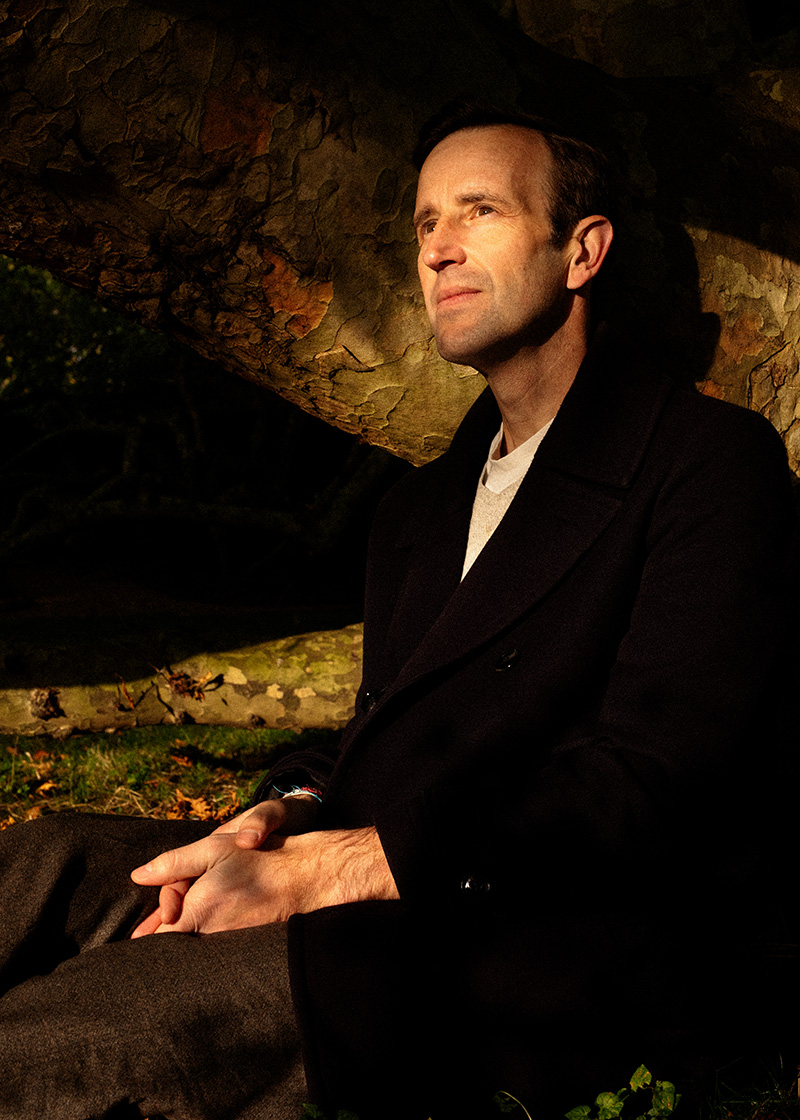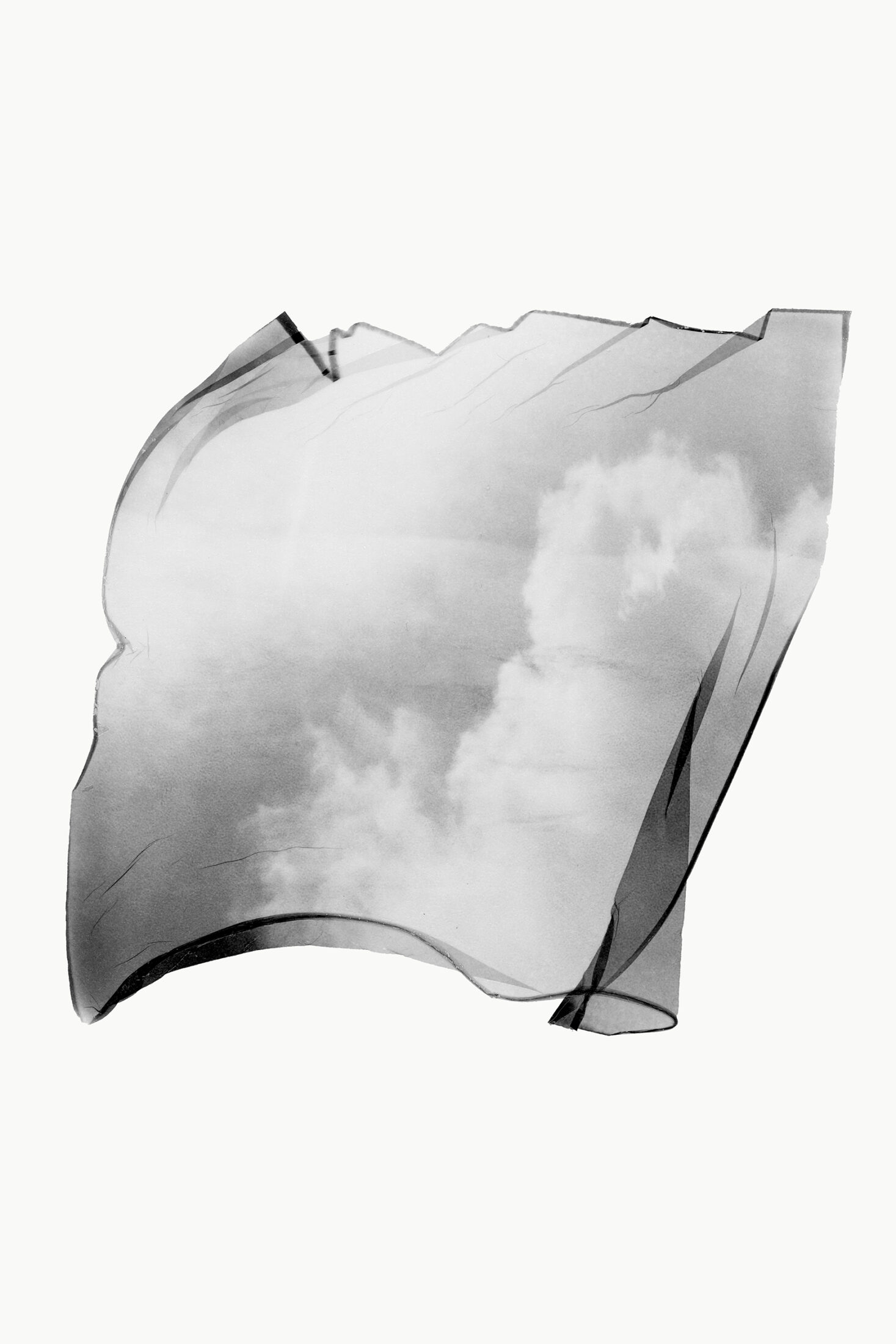
Memory, Praise, and Spirit
Emmanuel Vaughan-Lee is an author, Emmy- and Peabody Award–nominated filmmaker, and a Sufi teacher. He has directed more than twenty documentary films, including Taste of the Land, The Last Ice Age, Aloha Āina, The Nightingale’s Song, Earthrise, Sanctuaries of Silence, and Elemental, among others. His films have been screened at New York Film Festival, Tribeca Film Festival, SXSW, and Hot Docs, exhibited at the Smithsonian Museum and London’s Barbican, and featured on PBS POV, National Geographic, The New Yorker, and The New York Times Op-Docs. His new book, Remembering Earth: A Spiritual Ecology, is forthcoming from Shambhala in summer 2026. He is the founder, podcast host, and executive editor of Emergence Magazine.
Liz Potter is a film photographer based in the far western region of Texas, where she documents its landscapes, skies, and small towns. She recently published West TX: Polaroid: Cyanotype: Silver and has presented her work in several solo exhibitions, including at Marfa Studio of Arts, Louis J. Blume Library Gallery, and Pronghorn.
In this keynote talk given at a conference on spiritual ecology and peace building at St. Ethelburga’s Centre for Reconciliation and Peace in London, Emmanuel Vaughan-Lee speaks about how spiritual ecology is not only a framework for navigating the crises we face, but is a memory of living in kinship with the Earth. Turning towards praise and prayer in their myriad forms as pathways to remembering our spiritual connection with the living world, Emmanuel calls us to reawaken this relationship, sweep the dust of our forgetfulness, and hold the Earth in our hearts with love.
Transcript
The mystics say that we are like a seed; that we hold the blueprint for our highest potential within us, and that much of spiritual practice, regardless of what tradition, is unlocking that potential. But a seed also holds memories—memories of its origins, of its evolution, of its relationships. It holds songs, it holds ceremonies, it holds stories embedded within. And a human being is like a seed: we hold memories—memories of our origins, not just of this incarnation and this life, but as a species, as a whole, where we have come from, how we have evolved.
And although we hear “spiritual ecology” referred to as a field, as a form, as a philosophy, to me, at its root, it is a memory. But not a memory that has been wiped from us; a memory that has been veiled from us, some of us more than others. And what lies deep within is the memory of a time when we lived in relationship with this great Earth; with the recognition of who She is: a sacred, divine being. An alive, animate, sacred, divine being that we lived in relationship with, that we were part of.
Now, that is still true, but it has mostly been veiled from us as our world has evolved from that space of kinship and relationship and reciprocity to one that views this great Earth that’s around us as something separate from us, as something dead, as something to use as a resource.
And, to me, spiritual ecology is about awakening what already lies within. It is not about learning something new. Spiritual ecology is very, very old. It is as old as humanity. It predates what we refer to as “the growth of civilization.” It was there from the beginning. It is our beginning. We have created a framework and a form to understand the crisis we’re in. And that is helpful—to know that the root of our crisis is not just an ecological one or a political one or a social one or an economic one. Yes, it is all of those things. But what lies at the root? What lies beneath? What is there at the core?
For me, that is a spiritual question. Because at the core, in this time of old, we shared a spiritual connection with the Earth. Our spirit met Her spirit. We shared the same spirit. And that connection was slowly veiled, was slowly covered over, was severed at times by our forgetfulness of who She is, by faith-based systems that removed Her at times, by colonization and capitalism and all the vehicles of our modern era which have ripped our world apart. But at the core of all that, there is a spiritual crisis that we are being forced to turn to if we really want to understand what lies at the root. And what lies at the root is a memory held within us. A memory of a space that we share with this divine, sacred being that is the Earth. Divine, sacred being that is the Earth.
And this memory, it must be woken up. It must come alive in us. And many of us may have already felt this memory waking up inside of us; how it rises to the surface when we’re in a space where She is reflected strongly, because maybe the noise of the human drama is quieter than it is on this busy street in the midst of London; where the grandeur of Her beauty washes over us like a wave; where we cannot ignore how She offers Herself and offers Herself and offers Herself.
And in those moments this memory, it rises up inside of us. We feel this connection. We might even feel love. We feel a space that we share. That is not something new, but is something very, very old. It is within our DNA even, in the marrow of our bones. It is part of our physical bodies as much as it is part of our spiritual bodies. And those moments when She shows Her grace and beauty, and we bother to look, reflect and reveal what lies within and that ancient truth that is there at the core of ourselves.
But it also can be woken up through the pain and the grief and the violence and the destruction that is unfolding all around us—the pain that we feel that is too hard to ignore. It is all around us. It is enveloping us. It is taking over our world. It is taking over our lives. And if we allow it to penetrate us, it touches that deep memory and awakens a pain and a love and a grief, and the memory of a connection, and the question that cries out within us that says, why are you doing this?
There is an ancient love, a love like a child has for a mother, that lies within us that can get awoken, that brings this memory to the surface, that shakes the core of our very being. And when this memory bubbles up, surfaces, and comes alive within us, it can so easily fall back into the space that lies deep within us. And the question is, how do we prevent that from happening? How do we allow this awakening through the beauty that She offers and the grace of Her being and the pain and the grief and the suffering of witnessing the destruction we reap upon Her each day—how can we allow that awakening to become something that is a lived experience, a way of being, so that it is not forgotten? So that we don’t have to again try to surface that memory but can allow it to shift the fabric of our being so that we can again return to that fundamental ancient truth—not as a philosophy, not as a set of principles, not as a set of values, but something that we feel, taste, touch, smell, feel. It is embodied in our being. It permeates us from the inside out.
And for me, I have to turn again to something ancient here as a way to support this awakening of this ancient memory. The Sufi mystic Irina Tweedie, she used to say that we are born into this world with two primal ancient impulses. The first one is to survive—to stay alive, to breathe. And the second one is to praise—to praise and to pray to the Divine in all their forms. Not the ones that have been prescribed to us, but all their forms. We come into this world with these primal impulses. And this ancient memory that lies deep within us must be nourished by an ancient knowing that we come into this world with, this understanding of what it means to praise. And when we are children and we come into this world, we know this. We know how to praise Her. We don’t need to use words. We do not need to bow our heads and bring our hands together. We do not need to learn a dogma or a system. It is present within us. It is innate.
How many stories have we heard of children who say they talk to God? But they talk to God in all the ways that they feel to; not just in the ways that we are told we are supposed to talk to God. It is innate within us, just as this memory is innate within us—this ability to praise, to offer, to bring this ancient recognition of what it means to be a human being.
Because if we are part of this ancient, divine fabric of life that is animate and alive and sacred, then we must pay homage to that. We must give gratitude to that. We must relate to that. And not relate with our minds or our conditioning, be that individual or collective or religious or cultural, but to relate to it as we really are: as a spirit, as a soul. So that spirit can meet spirit. The great spirit that is this divine being, that is our Earth—because She is that—demands to be met from our spirit. Because a prayer is essentially finding a way to access the spirit within and offer it to the greater spirit. Regardless of what tradition you come from, prayer offers that way of giving thanks, of offering gratitude, of being in a space of reverence, and of creating a relationship. Prayer is as much about thanks and reverence and forgiveness—these forms we know—as it is about making a relationship, validating a relationship, building a relationship, so that our spirit and Her spirit can again be one spirit and not severed into two.
And there are so many ways to praise. The one thing we have done over all these millennia is develop the most amazing ways to praise—the intricacy, the diversity of how we have done this. Some ways are secret. They belong to a people and a place and a culture and should be kept as such. But some ways are universal: listening to the Divine, offering our thanks, offering our forgiveness. And I think that is important, because we have done so much that demands forgiveness. Universal ways of praise. Universal ways of building a relationship. And if we integrate prayer and praise into our lives, whether we come from a faith-based tradition or we do not, we support the awakening and the space of Her that lives within us to become an embodied way of being. An embodied way of being. One does not just pray once and say, I’ve done that. One returns again and again and again to offer praise, to offer thanks.
Yes, there are high days of worship. There are ceremonies. There are times of the year when a special offering can be made. But real prayer must be done constantly; must be part of the way we live our lives. And again, it does not require words to be uttered. It can be the recognition of seeing Her as She greets us as we move about our day in the myriad ways that She exists around us. Even in an urban setting like this part of London, She shines down upon us. We hear the birds in the street. There are more ways to see Her than we have eyes to perceive Her. Recognition, acknowledgment. We walk upon Her as we move about our day. We drink Her. We nourish ourselves with Her as we eat our daily bread. And those are just a few. We cannot limit the way that we praise Her.
They say there are as many ways to praise God and reach God as there are human beings. But we have limited that. And we have narrowed our view of the Divine to a transcendent God in heaven and abandoned the Divine beneath our feet. And this ancient memory is a return to the understanding that She is there beneath our feet. We cannot ignore that anymore. For a limited idea of the Divine is part and parcel of what has led us to be in the situation that we are in. And we must shift that.
And it is the responsibility of all, I feel, to take this serious spiritual understanding into account, whether we are part of a faith-based tradition or not. We must evolve. We must return to this ancient understanding and integrate it into the reality of our lives in response to this great crisis that we are in. Because we will not fix this crisis by trying to keep the oil in the ground alone, or shifting our transportation systems to be green and clean, or even by abandoning capitalism and facing the error of our ways and our history and what we have done to the planet and the people that make it their home. We must include the divine nature of this Earth again in the foundation of who we are as human beings, as individuals, and, I hope one day, as societies.
And prayer must be part of that. Prayer must not be made taboo, as it has become in an increasingly secularized modern world, partially because we have limited the understanding of prayer and of praise, and said it must happen in a church on a Sunday or in a mosque five times a day. No. This ancient memory we hold within us and the space we are brought into in this world with this innate understanding of praise, it challenges that.
In some ways, we have to unlearn these systems of praise in order to connect to the true potential of what it means to be a human being in praise. And the most amazing thing about prayer and praise, to me, is that it never is just about us. It is not only for healing the separation that we have as individuals with the Earth, with this divine being that is our home. It is that, but it is much more, and this is where it becomes about spirit and matter to me, not just as individuals, but as part of a holistic healing that must unfold. For if we are to really, not only heal, but survive, then we must shift as a whole, which means our actions must benefit the whole. And prayer has the capacity to benefit the whole.
Any real spiritual act, if it is offered from the depths of our being, from our hearts, from something that is true, it has the power to benefit more than just us. That is what we refer to as a spiritual technology. That when we offer and we offer for the sake of others, whether that be other human beings or other more-than-human kin or even this great divine being that is the Earth herself, then it benefits the whole.
And we often hear about the insignificance of our individual choices in this environmental space; that while we may eat well and recycle and drive the right car and take public transport and fly as little as we can, those contributions will not really make a difference, because the real change must come from system change, from policy change, from corporate change. And while that may be true, in part, prayer offers something to me that can—regardless of how insignificant we might feel in our contribution and what it can make—it offers something that can change the system.
To me, prayer and praise is a radical act. It can be revolutionary as long as we don’t limit it. It benefits the whole, and our individual contribution can help heal the divide between spirit and matter. It is almost as if the spirit that we have within that we can harness, whether through the awakening of the beauty of Her bounty, or the despair and grief and pain of what we have done to Her, the spirit that is awakened from that moment—that is nourished and embodied more deeply through prayer—it creates a thread, a thread that can be woven between spirit and matter to heal the divide. Each prayer can be an offering like that.
And the wound is deep, and the wounds are many. And prayer alone won’t heal it. It must be done in concert, in combination, in relationship with all the other things that we know must be done. But if prayer and praise and the recognition of the sacred nature of creation lies at the root of our way of being, then all actions come forth from that understanding. Then values are obvious: reverence, interconnectedness, compassion, service, of course. How could they not be anything but. So that the action one takes is threaded with spirit, is threaded with love, as we offer it for the sake of the whole.
[St. Ethelburga’s bells toll]
The Sufis, they call themselves “sweepers,” because they devote their lives through the power of the remembrance of the Divine to sweeping the dust of forgetfulness that lies upon the face of the Earth. And to me, prayer is like that. Prayer is a sweeping of forgetfulness, because it is an honoring of remembrance. It is an affirmation, and an affirmation is more powerful than a negation. Threads of love that weave together the split of spirit and matter are present in each of our prayers and each of the ways that we look upon Her, that we hold Her in our hearts, as we awaken this ancient, ancient memory of what spiritual ecology really is: spirit and home. And that includes all of us, and we must honor that.
Thank you.
